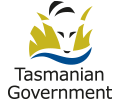7.2 Communications procurement
Principles
The procurement of communications goods and services should be planned and executed to deliver the communications objectives of the project, while encouraging fair and open competition between suppliers and achieving best value for money.
Procurement should comply with the purchasing principles embodied in Treasurer’s Instruction PF-1 Procurement Principles:
- value for money
- open, impartial and effective competition
- providing local suppliers that wish to do business with Government the opportunity to do so through the adoption of the Buy Local Policy requirements; and
- observation of ethical procurement standards during the course of procurement activity by buyers (including external representatives purchasing on behalf of the Agency / Government).
Policy requirements
All procurement of communication and marketing goods and services must:
- be approved by the Communications Manager prior to initiating any procurement activities.
- comply with the requirements of Treasurer’s Instructions PF-3 Policies impacting on procurement: Goods and services relating to procurement, including Common Use Contracts and Master Ordering Arrangements (MOAs) for television, print media for vacancy, tender and public notices and radio advertising.
- comply with the rules and requirements outlined in the Free Trade Agreements to which Australia is bound when conducting covered procurements.
It is not acceptable to split the services or goods – where they are part of a single campaign – with the intention of reducing the value of the procurement and therefore circumventing approval requirements.
Further information is available from www.purchasing.tas.gov.au including information about International Procurement Obligations which explains requirements for Tasmanian Government Agencies under Free Trade Agreements.
In addition, the following requirements must be met in procuring communications goods and services:
Communications goods and services valued at $100,000 or less (exclusive of GST)
- Treasurer’s Instruction PP-2 Market Approaches states that the market approach is to be determined by the Agency.
- Treasurer’s Instruction PF-2 Policies impacting on procurement: all procurement requires that an assessment of the impact on local suppliers be undertaken.
- In line with the intention of the Buy Local Policy, a quote should be sought from a local supplier where local capability exists.
- Treasurer’s Instruction PF-5 Accountability and Reporting at clause 5.8 states that for all procurement contracts valued at $50 000 or more (including extensions pursuant to clause 6.2 of PP-6 Procurement Processes - Contract Extensions: Goods and Services), notices detailing awarded contract information must be prepared for publishing on the Tenders website. The notice must be prepared and submitted to the Department of Treasury and Finance within 10 working days of the contact being awarded.
Communications goods and services valued between $100,000 and $250,000 (exclusive of GST)
- TI-PP-2 requires that agencies seek at least three written quotations unless otherwise authorised by the Accountable Authority[1].
- TI PF-2 requires that suppliers be requested to provide an Economic and Social Benefits Statement/Test. The Instruction also requires that the evaluation criteria include, as a criterion, the Economic and Social Benefits Statement/Test provided by the supplier and that the weighting applied to the criterion be at least 25 per cent. The weighting of 25 per cent is to apply to both the qualitative and quantitative criteria combined.
- TI PF-2 requires that at least two submissions be sought from Tasmanian business where local capability exists.
- Must be approved by the Manager, Communications and Protocol Unit, DPAC
- Must be approved by the Accountable Authority including approval of the Pre-procurement Local Impact Assessment form.
Communications goods and services valued at $250,000 and over (exclusive of GST)
- Any evaluation process (for example a tender evaluation panel) must include the agency communications manager or their delegate and the Manager, Communications and Protocol Unit (DPAC) or their delegate.
- TI PP-2 requires that a public tender must be conducted unless otherwise authorised by the Accountable Authority of the relevant agency in accordance with PP-2 clauses 2.15 to 2.19 (inclusive) OR where an approved pre-existing contract for communications services exists with a provider.
- In accordance with TI PF-2 the planning process and specification for any procurement process must ensure Tasmanian suppliers are given every opportunity to participate in a procurement and be successful. Additionally, agencies must disaggregate all substantial procurement opportunities unless the benefits of the aggregation clearly outweigh the potential negative impacts on local SME suppliers/the local economy. In such cases, an exemption from the requirement to disaggregate must be approved by the Accountable Authority.
- TI PF-2 requires that suppliers be requested to provide either an Economic and Social Benefits Statement/Test (for procurements valued at $100 000 more) or a Tasmanian Industry Participation Plan for procurements (valued at $5 million or more). The Instruction also requires that the evaluation criteria include, as a criterion, the Economic and Social Benefits Statement/Test provided by the supplier and that the weighting applied to the criterion be at least 25 per cent. The weighting of 25 per cent is to apply to both the qualitative and quantitative criteria combined.
- TI PF-2 requires that at least two submissions must be sought from a local business where local capability exists.
- The Manager, Communications and Protocol Unit, DPAC must approve the tender evaluation report by participating in the tender evaluation panel.
- Be approved by the Accountable Authority including approval of the Pre-procurement Local Impact Assessment and Industry Consultation form.
- Where the value of a procurement exceeds $5 million, TI PF-2 requires a Pre-Procurement Industry Consultation Report to be prepared and approved by the Accountable Authority prior to advertising the procurement opportunity.
[1] An Accountable Authority is a person responsible for the financial management of an Agency. Schedule 1 of the Financial Management Act 2016 details the Accountable Authority for each government and legislative agency. This list includes Department Secretaries, Directors and Chief Executive Officers of State authorities, and the Clerks of the House of Assembly and the Legislative Council. https://www.treasury.tas.gov.au/Documents/Accountable%20Authorities%20-%20Fact%20Sheet.pdf
It is recommended that:
- advice on the appropriate procurement process be obtained from an agency’s procurement area, particularly as individual agencies may impose additional requirements.
